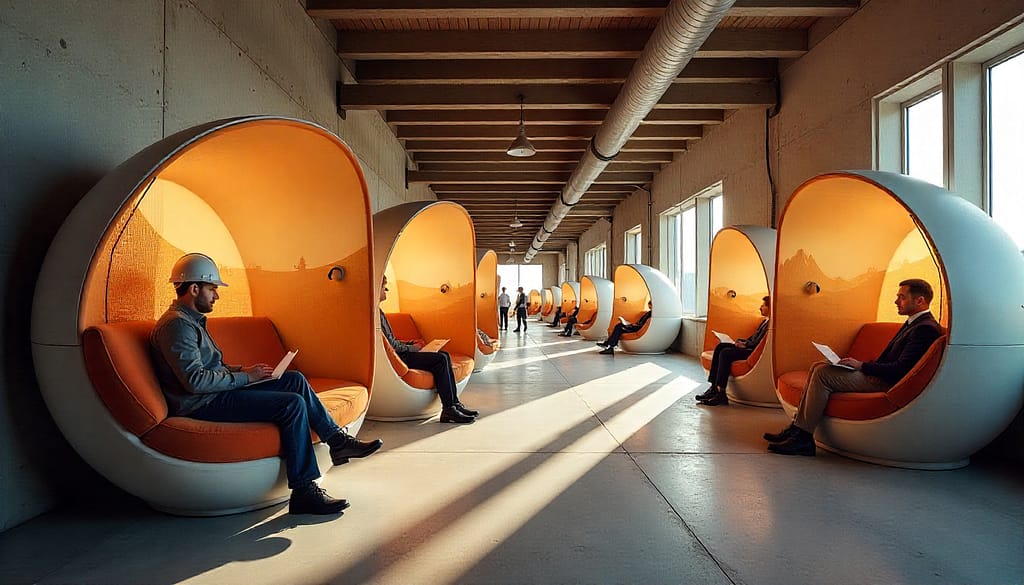Executive Summary
Physical Workspace Design and Culture play a pivotal role in shaping organizational success, particularly in today’s dynamic global workforce. As businesses expand across regions like the UAE, Saudi Arabia, Kuwait, and Europe, understanding how workspace design influences employee productivity, engagement, and cultural alignment becomes essential. A well-designed workspace fosters collaboration, reflects company values, and ensures compliance with local regulations. This article explores the intersection of workspace design and culture, offering actionable insights for businesses aiming to optimize their work environments while navigating regional nuances.
Chapter 1: Introduction to Physical Workspace Design and Culture
Physical Workspace Design and Culture are critical components of modern workplace strategy, influencing everything from employee morale to operational efficiency. In regions like the UAE and Europe, where diverse workforces converge, designing a workspace that accommodates cultural preferences and legal requirements is paramount. For example, UAE labor laws mandate specific workspace conditions, while European countries emphasize ergonomic standards and inclusivity. Companies must balance these factors to create environments that attract and retain top talent. SHRM highlights that workspace design impacts employee satisfaction by up to 30%, underscoring its importance. Additionally, cultural considerations—such as open vs. private workspaces—vary by region, requiring tailored approaches. By integrating Physical Workspace Design and Culture into HR strategies, businesses can enhance productivity while fostering a cohesive organizational identity.
Chapter 2: Best Practices for Physical Workspace Design and Culture
Detailed Strategies and Methodologies
Effective workspace design begins with understanding employee needs and regional expectations. For instance, collaborative spaces are favored in creative industries, while quiet zones are essential for focused tasks. Case studies from companies like Google and Siemens demonstrate how flexible layouts improve innovation and efficiency. Additionally, incorporating biophilic design—such as natural lighting and greenery—boosts well-being. Compliance with local laws, such as Dubai’s workplace safety regulations, ensures legal adherence while promoting employee trust.
How Allianze HR Consultancy Helps
- Free Hiring Model: Allianze eliminates financial barriers for job seekers, ensuring access to top-tier opportunities without fees. This model attracts diverse talent while maintaining ethical recruitment standards.
- Ethical Sourcing: Allianze partners with South Asian talent pools, adhering to strict compliance measures. Transparent processes, including fair wage agreements and legal documentation, safeguard both employers and employees.

Allianze’s expertise extends to workspace integration, advising clients on culturally aligned designs that enhance team dynamics. Their end-to-end recruitment solutions include pre-screening, relocation assistance, and post-hire support, ensuring seamless transitions for global hires.
Chapter 3: Common Challenges and Solutions
Navigating Physical Workspace Design and Culture presents several challenges:
- Cultural Misalignment: A European firm expanding to the Middle East may face resistance to open-plan offices. Solution: Conduct cultural audits and pilot flexible designs.
- Legal Compliance: Kuwait’s labor laws require gender-segregated workspaces. Solution: Partner with local HR experts to adapt layouts.
- Employee Resistance: Remote workers may resist office returns. Solution: Implement hybrid models with designated collaboration days.
- Budget Constraints: Startups may lack resources for premium designs. Solution: Prioritize cost-effective ergonomic upgrades.
- Sustainability Pressures: Europe’s green building standards demand eco-friendly materials. Solution: Invest in reusable furniture and energy-efficient systems.
Checklist: Best Practices
- Use job descriptions that respect local laws. For example, Saudi Arabia’s Nitaqat system mandates hiring quotas. Tailor descriptions to align with such policies.
- Offer relocation support. Provide housing assistance, visa processing, and cultural training to ease transitions.
- Partner with ethical agencies like Allianze. Verify certifications (e.g., REACH/ISO) and audit recruitment practices.
- Use regional keywords in job ads. Terms like “Dubai-based” or “EU remote” improve visibility in local searches.
Conclusion
In conclusion, Physical Workspace Design and Culture are indispensable for global business success. To summarize, prioritize cultural adaptability, legal compliance, and employee well-being in workspace planning. Ultimately, businesses that invest in thoughtful design will see higher retention and productivity. Five final tips: 1) Conduct regional research, 2) Leverage hybrid models, 3) Engage local experts, 4) Monitor employee feedback, and 5) Iterate designs based on data.
About Allianze HR Consultancy
Allianze HR Consultancy is a leader in ethical global recruitment, serving clients across the UAE, India, Nepal, Kuwait, and Saudi Arabia. Founded on principles of transparency and zero-cost hiring, Allianze specializes in end-to-end talent acquisition, from sourcing to onboarding. Services include compliance audits, workspace design consulting, and relocation management. Testimonials highlight Allianze’s role in reducing hiring timelines by 40% while ensuring full legal adherence. Contact us today to streamline your recruitment needs with a trusted partner.


